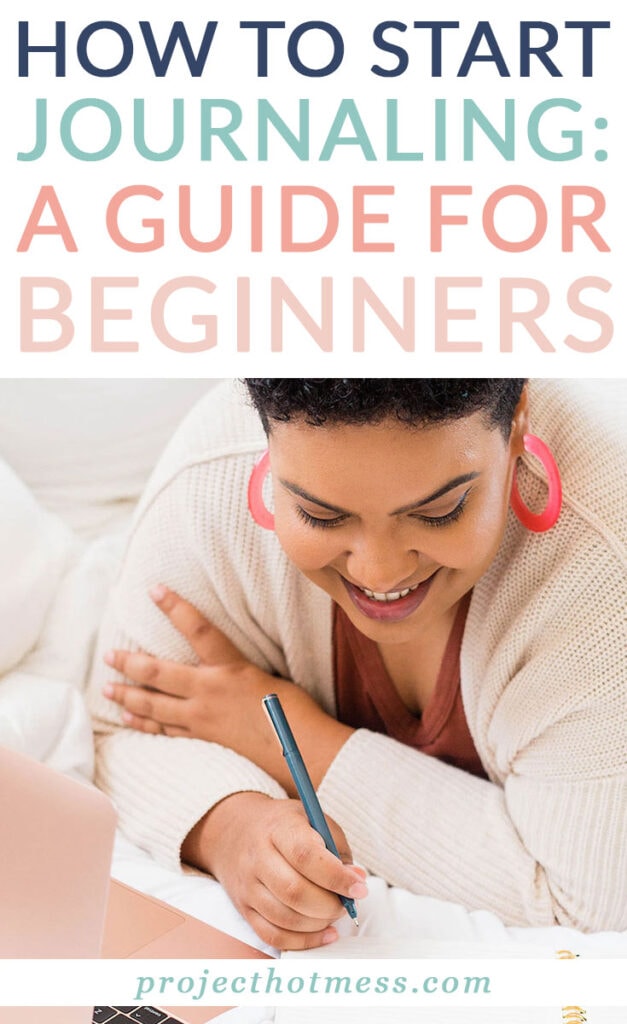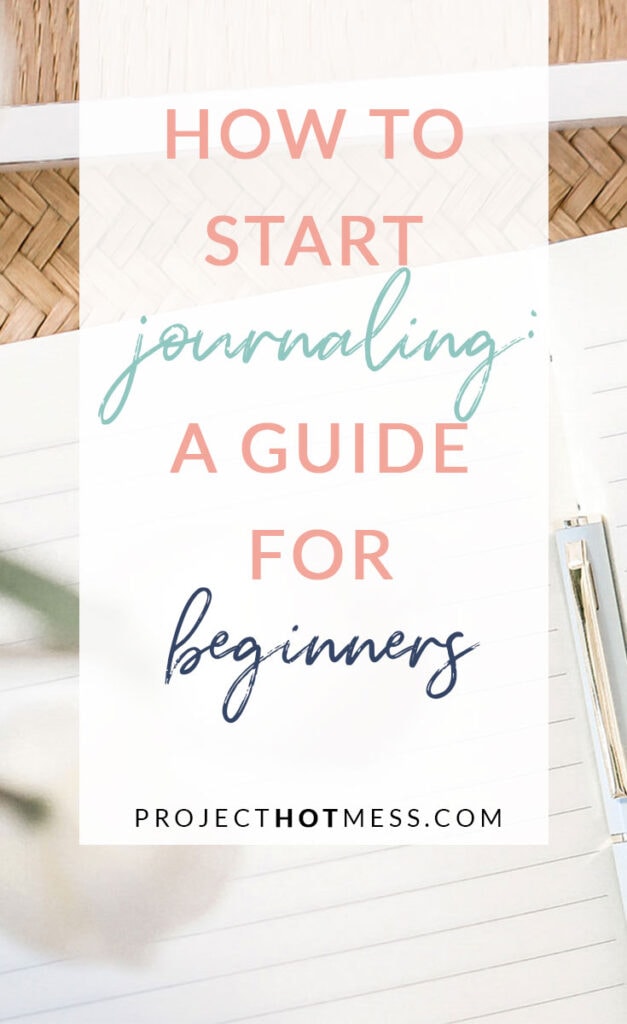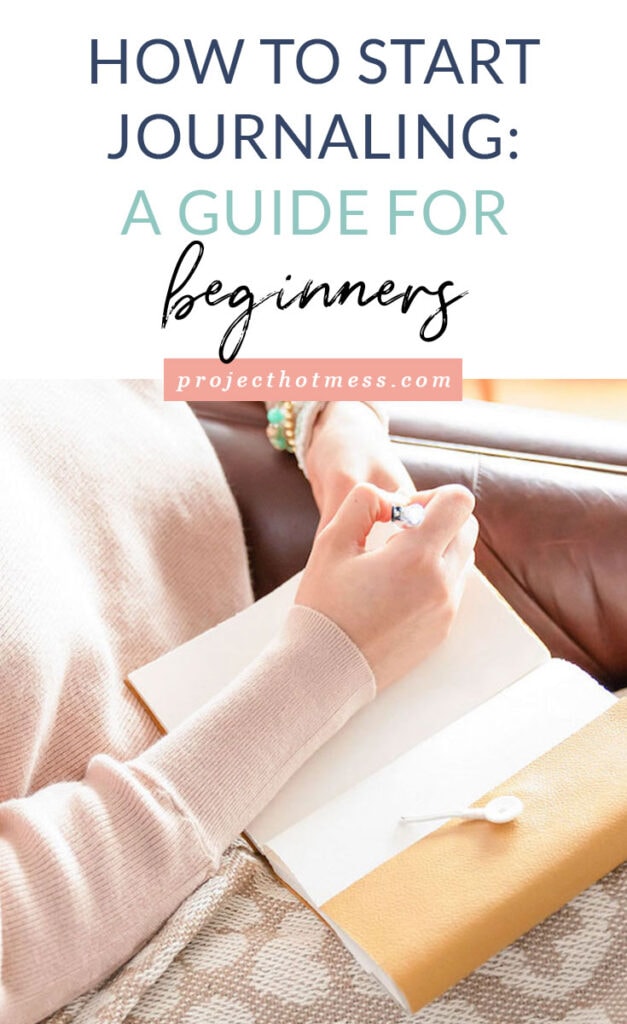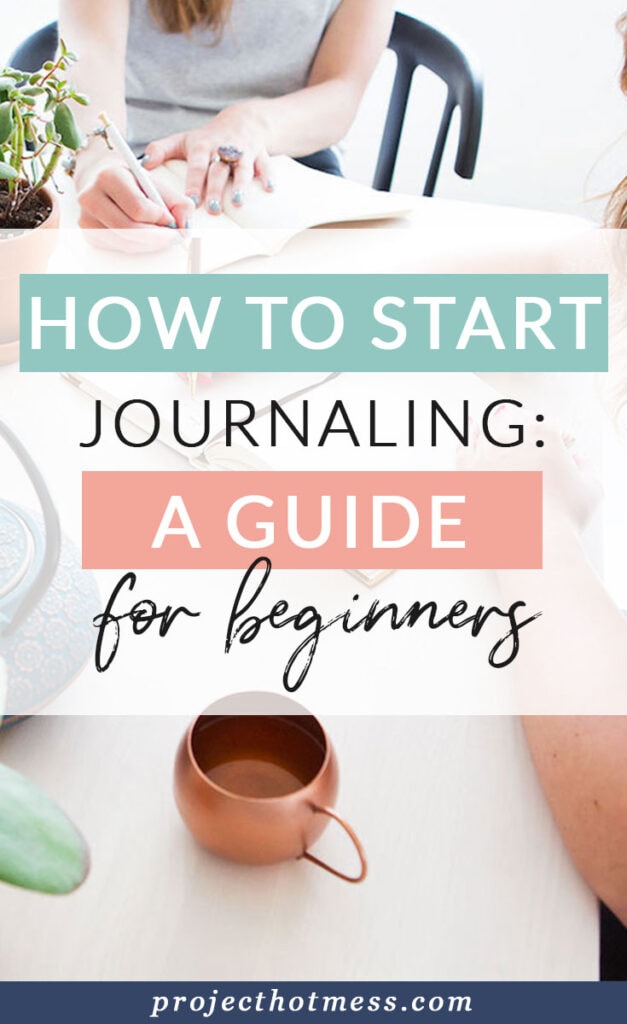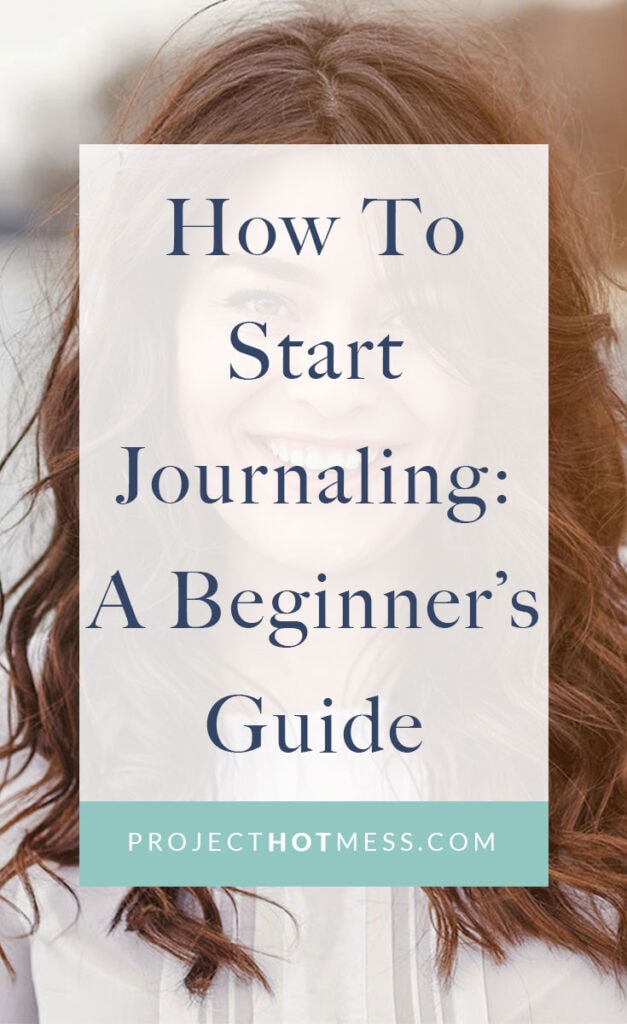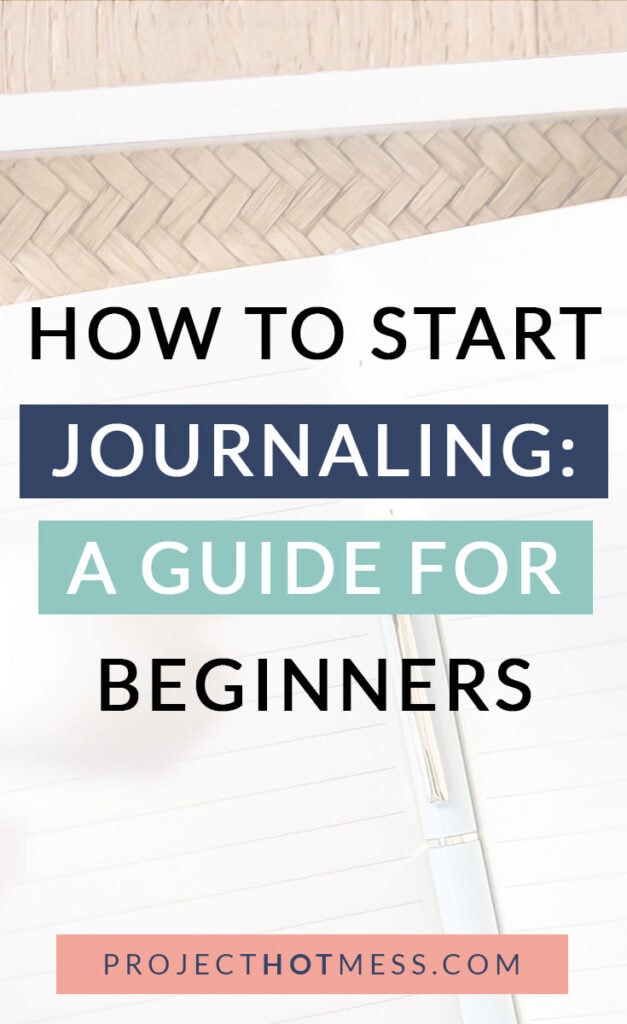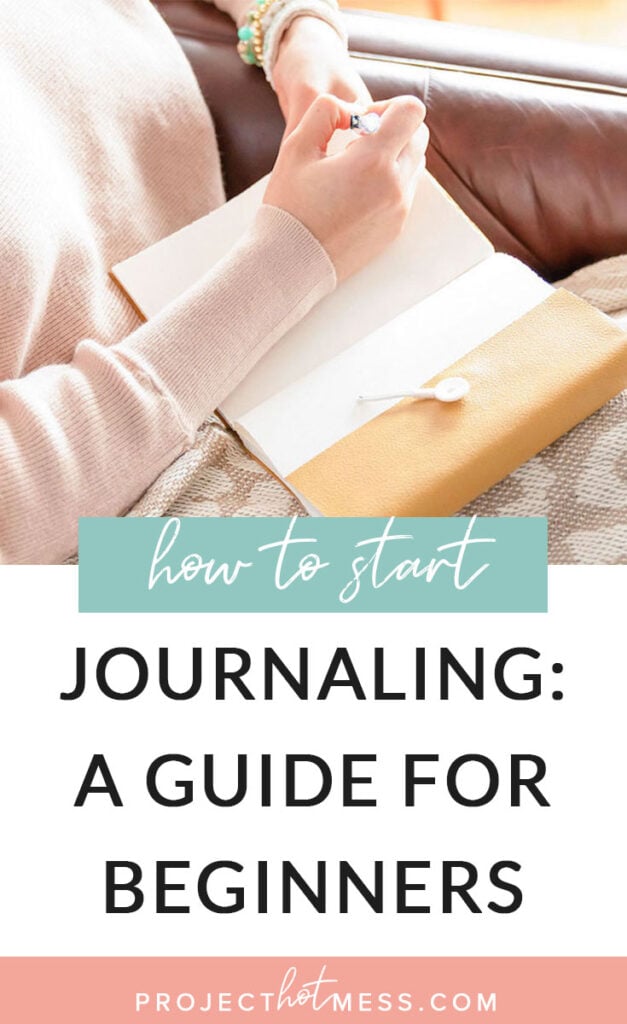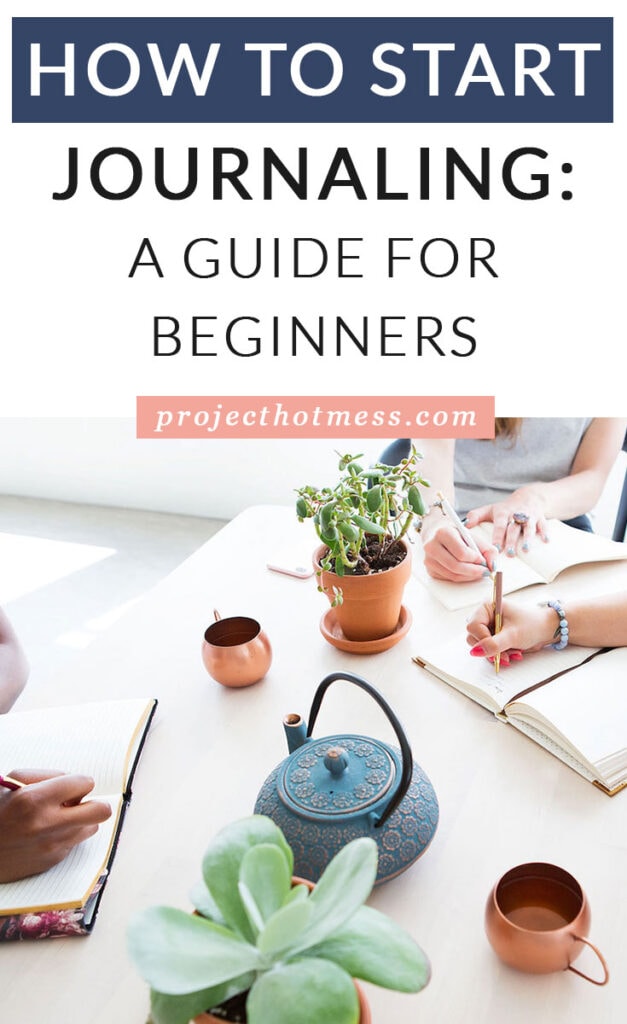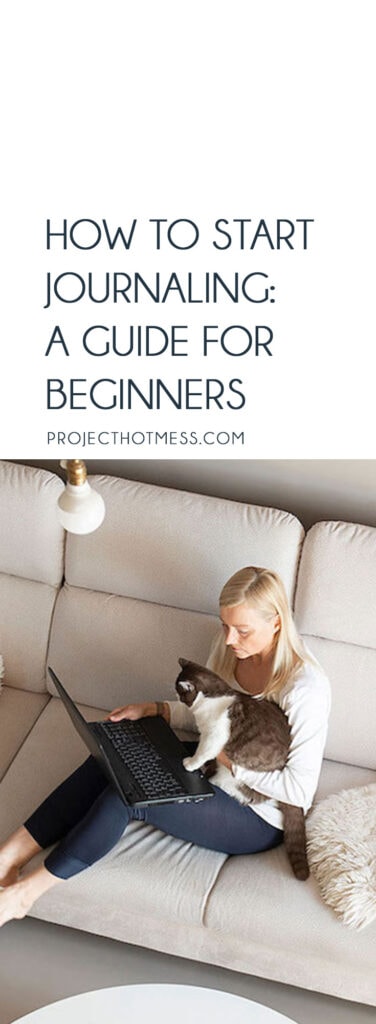How To Start Journaling: A Guide For Beginners
Have you decided that you want to start a journal? Maybe you have heard of the benefits that writing daily can provide. Maybe you know someone who has overcome anxiety or stress due to journaling. No matter your reason, it’s always a good time to start writing down your thoughts every day.
If you are wondering how to start journaling, I promise it’s not as complicated as it might feel.
You don’t need a fancy diary or special pens to start. And you don’t need to overthink or worry about ‘doing it wrong’.
Of course, if it would make things more fun for you, grab those coloured pens and a special notebook (I have this Kate Spade one)!
You can even go digital if you want and journal on your iPad or on your phone. Whatever is most comfortable for you.
When you start, the most important thing is that you get started, you can add fancy bits and pieces and refine your style as you go.
The following tips will not only help you get started with journaling, but they will make it easier for you to continue the task every day!

Determine WHY You Want To Start Journaling
It’s a good idea to have a reason for journaling before you begin. This way, you will stay motivated to write every day.
It is common for people to decide to journal, then give up after the first few days. If you have determined WHY you want to journal, however, you are more likely to keep up with it.
Right now, you might not really have a deep and meaningful reason why, and that is totally okay.
Your why can literally be as simple as ‘because I want the benefits that come with journaling’.
Some reasons a you may want to journal include:
- Reduce stress
- Cope with depression
- Help manage anxiety
- Promote healthy self awareness
- Release thoughts that are packed in your brain
- Understand problems or fears you are experiencing
- Give clarity to a mind full of jumbled thoughts
- Create goals to achieve tasks or reach your dreams
You may very well have more than one reason to begin a journal – the more the better!

Choose How You Want To Start Journaling
Traditionally, a journal is a paper notebook. However, there are so many ways you can choose to start journaling practice.
You can journal by writing in a document on your computer with something like Google Docs (which you can also access on your phone to journal on the go), or you can even use an app like GoodNotes on your iPad and write with your pen!
However, if you’re the kind of person who prefers pen and paper, then a simple notebook can get you started, or splurge on a cute notebook you love and may keep you more motivated to write.
Choose a method of journaling that best fits your lifestyle and that you are most likely to stick with.

Set Your Journaling Goals And Expectations
It is important that you don’t get too hard on yourself when you start journaling.
It’s easy to make journaling more of a chore that you don’t look forward to, even if you enjoy writing.
If you aren’t used to getting your thoughts down on paper (or on a screen), you may quickly resent journaling and want to give up.
Many people start journaling by writing 10-15 minutes each day. But if this feels like too much, reduce the time to 5 minutes.
You can always choose increase the time once you have established a good writing routine and get better at putting your thoughts into words.
Or you may just write until you don’t have anything else left to write – you don’t need to put a specific time on it.
While setting a goal of writing at the same time each day (such as when you wake up, or before you go to bed) sometimes life gets in the way.
Many people find it better to write in the morning, as they can release one negative thoughts or feelings before getting on with the day.
If you don’t have time to write in the morning, you can do it on your lunch break or even at night before bed. Choose a time that works best for you.
And remember, it’s okay to skip a day.
Sometimes you’re just not up for it.
Unexpected situations can arise and throw off our entire day. And sometimes things just get in the way.
It’s okay if you don’t journal every single day. Just remember to pick it back up the following day.
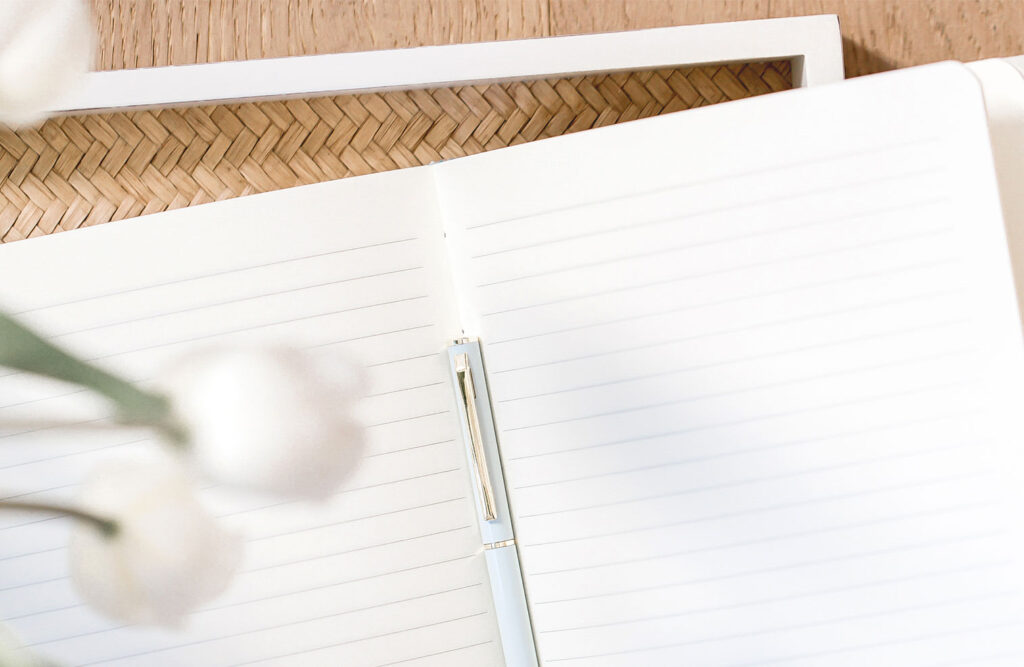
Tips To Keep You Motivated With Journaling
Sometimes it can be difficult to find the motivation to pick up your journal – or open an app.
You’ll often find that most people who love their journaling practice have struggled at some point to keep up with their writing goals.
The key is to make it easy for you to remember to do it, and make it easy to do.
Try to think of your writing as a positive part of your day, something you get to do as opposed to something you have to do.
Tip #1 – Use Journaling Prompts
There are many journaling prompts you can find with a simple search that will boost your thinking if you are ever stuck.
A straightforward reflective question such as “Where do you see yourself in 5 years?” can give you the nudge you need to fill in and easy 10 minutes of writing time.
One of my favorite ways to start off any journal page when I’m struggling with what to write is simply ‘One thing that’s been on my mind lately is…’ and then let the words flow.
If you ever feel like you’re stuck and not sure what to say next, or hit a bit of a block, you can use ‘which means’ in order to keep going.

For example, you could write something like ‘One thing that’s been on my mind lately is how little time I’ve had to myself. I don’t often actually get to spend time alone, in my home, without anyone else here. Which means I don’t get time to completely unwind, not have to answer to anyone, and I always feel like I’m responsible for someone. This absolutely drains my energy levels.’
You can see how a simple ‘which means’ makes it easier for you to keep going with your writing.
You can also find a whole section of Journal Prompts inside the Hot Mess Academy that range in topic from general life, your goals and aspirations, how you feel about finances, and so much more.
Tip #2 – View Journaling as a Habit, Not a Hobby
A lot of people start journaling as a way to cope with stress, so if you’re starting to stress about journaling, then you’re working backwards!
Journaling should be something you look forward to, not something that stresses you out!
Making journaling part of your daily routine can help with this.
Add it to the sequence of your day, keep it at the same time each day, and make it so you don’t even really have to think about it.
Viewing it as an important part of your day helps you feel the benefits quicker.
Tip #3 – Remind Yourself Every Day
As someone who often forgets to eat during the day because I get so distracted, I know how important little reminders can be.
Setting reminders and alarms on your phone can help you journal daily until it becomes so much part of your routine that you no longer need a reminder.
A little extra tip… be sure to make your reminder a happy one, rather than a blaring alarm that makes you jump when it goes off.

Tip #4 – Choose Your Place
As we have said over and over, journaling should be a happy and relaxing part of your day, which means you should be comfortable when doing it.
If you’re sitting on a hard chair, if you’re cold and uncomfortable, then you’re not really going to get into your journaling flow.
If you’re feeling low on energy and feeling stuck with your writing, sometimes just a change in scenery can make it easier for the words to come.
Move to a new room in your home if you feel stuck.
Try journaling at a different time of day and changing your schedule if the habit starts to feel more like a chore.

Step outside your home and give journaling in the park or at a coffee shop a try (my local cafe is by far my favourite place).
You never know what kind of inspiration may hit when in a new environment and sometimes I even find people watching to be a brilliant muse for my writing.
Journaling has been proven to be beneficial, and often it’s the starting phase that is the hardest.
Even though writing every day can feel like a struggle at times, it can quickly become an amazing release and even the part of your day you look forward to the most.
If you’ve ever considered journaling (which I would hope so if you’re at this point of the article) then give it a go today!
Right now. Just start. While these tips can help you, there are no rules and you can create your own perfect style and routine of journaling. Happy writing!
